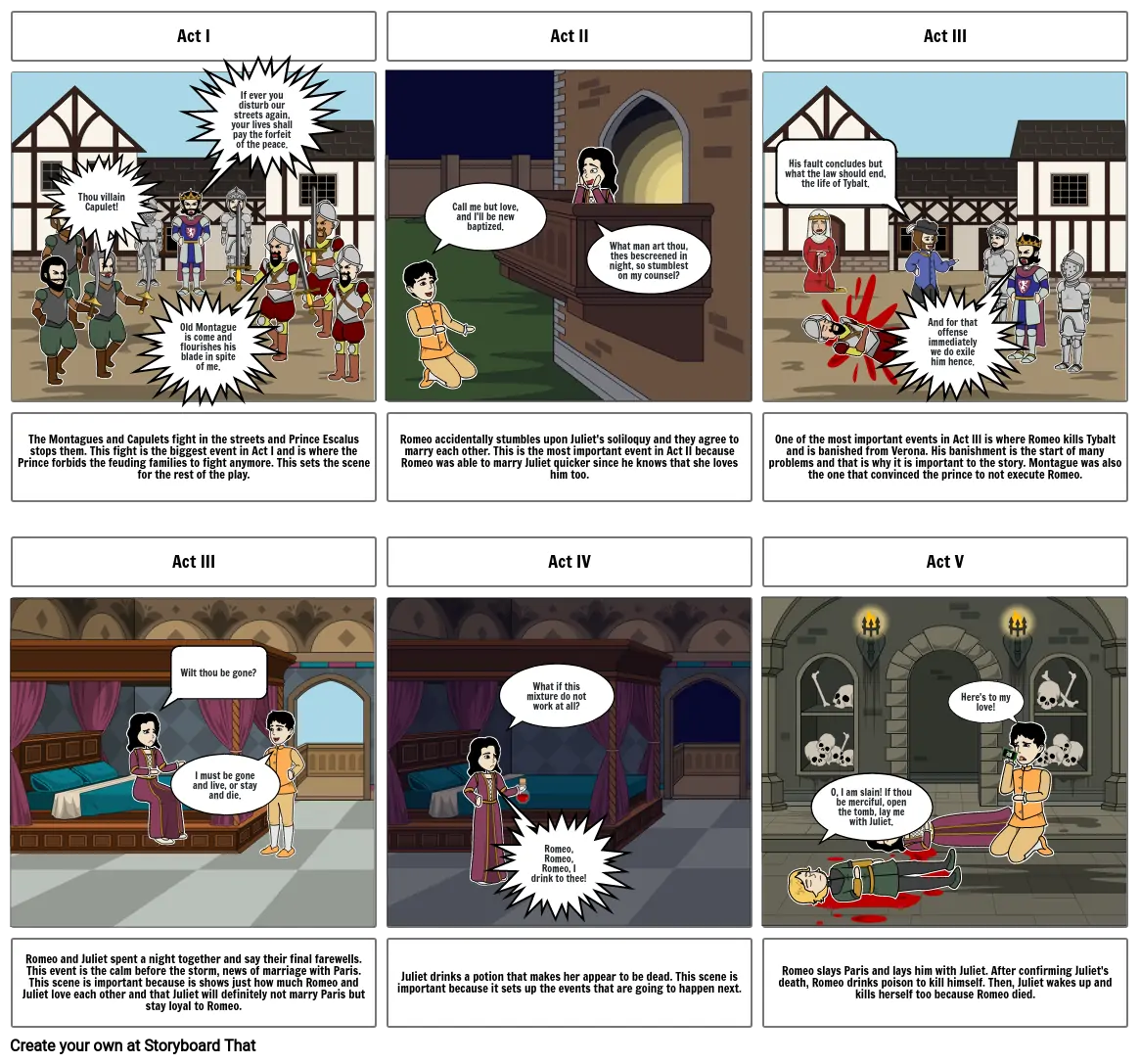R and J Part 1

स्टोरीबोर्ड पाठ
- Act I
- Thou villain Capulet!
- Old Montague is come and flourishes his blade in spite of me.
- If ever you disturb our streets again, your lives shall pay the forfeit of the peace.
- Act II
- Call me but love, and I'll be new baptized.
- What man art thou, thes bescreened in night, so stumblest on my counsel?
- Act III
- His fault concludes but what the law should end, the life of Tybalt.
- And for that offense immediately we do exile him hence.
- The Montagues and Capulets fight in the streets and Prince Escalus stops them. This fight is the biggest event in Act I and is where the Prince forbids the feuding families to fight anymore. This sets the scene for the rest of the play.
- Act III
- Wilt thou be gone?
- Romeo accidentally stumbles upon Juliet's soliloquy and they agree to marry each other. This is the most important event in Act II because Romeo was able to marry Juliet quicker since he knows that she loves him too.
- Act IV
- What if this mixture do not work at all?
- One of the most important events in Act III is where Romeo kills Tybalt and is banished from Verona. His banishment is the start of many problems and that is why it is important to the story. Montague was also the one that convinced the prince to not execute Romeo.
- Act V
- Here's to my love!
- Romeo and Juliet spent a night together and say their final farewells. This event is the calm before the storm, news of marriage with Paris. This scene is important because is shows just how much Romeo and Juliet love each other and that Juliet will definitely not marry Paris but stay loyal to Romeo.
- I must be gone and live, or stay and die.
- Juliet drinks a potion that makes her appear to be dead. This scene is important because it sets up the events that are going to happen next.
- Romeo, Romeo, Romeo, I drink to thee!
- Romeo slays Paris and lays him with Juliet. After confirming Juliet's death, Romeo drinks poison to kill himself. Then, Juliet wakes up and kills herself too because Romeo died.
- O, I am slain! If thou be merciful, open the tomb, lay me with Juliet.
30 मिलियन से अधिक स्टोरीबोर्ड बनाए गए

